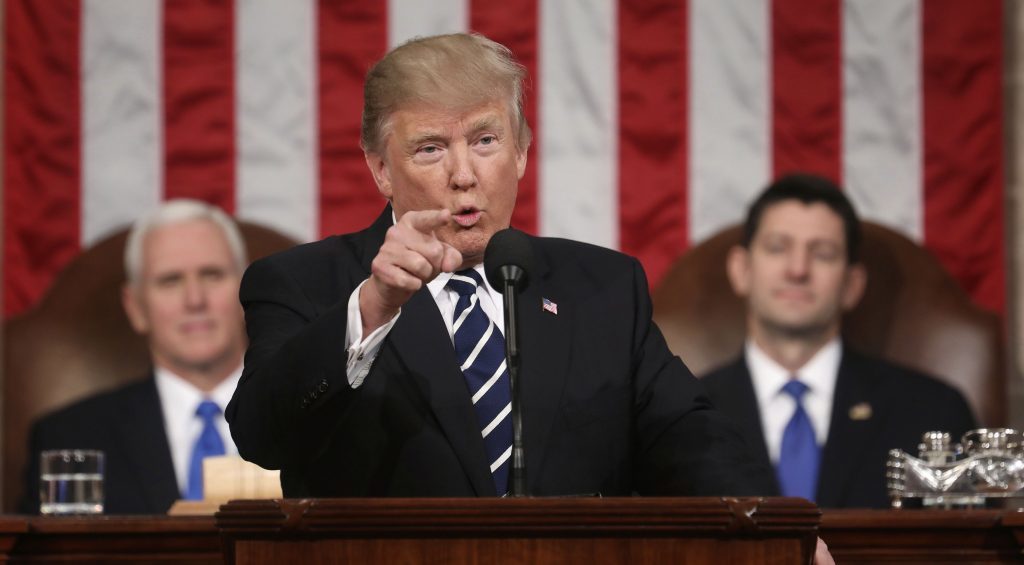
Donald Trump ripped into business leaders who resigned from his White House jobs panel after his response to violence by white supremacists in Charlottesville, Virginia.
In the latest sign that corporate America’s romance with the president is faltering, five members of his manufacturing panel have quit.
“They’re not taking their job seriously as it pertains to this country,” Mr Trump said at an impromptu news conference at Trump Tower in New York City.
After his remarks, the fifth member of his manufacturing panel resigned, AFL-CIO president Richard Trumka, who said: “We cannot sit on a council for a president who tolerates bigotry and domestic terrorism.”
The president denied his original statement about the violence in Virginia on Saturday – saying “many” sides were to blame, rather than hate groups – was the cause of the departures.
“Some of the folks that will leave, they’re leaving out of embarrassment because they make their products outside” the US, he said.
Mr Trump attacked the chief executives who left on Twitter as “grandstanders“ and said he had plenty of executives available to take their place.
But the parade of departing leaders from the panel seems closely linked to how the president responded to events that led to the death of a counter-protester who opposed the white supremacists.
Among those who have left are the chief executives of Merck, Under Armour and Intel and the president of the Alliance for American Manufacturing.
Alliance president Scott Paul, in a tweet, said simply: “I’m resigning from the Manufacturing Jobs Initiative because it’s the right thing for me to do.”
Wal-Mart chief executive Doug McMillon joined the chorus, saying in a note to employees: “(We) too felt that he missed a critical opportunity to help bring our country together by unequivocally rejecting the appalling actions of white supremacists.”
But he plans to stay on a separate Trump advisory panel and said the president’s follow-up remarks on Monday that named white supremacists were a step in the right direction.
Corporate leaders have been willing to work with Mr Trump on taxes, trade and reducing regulations, but they have increasingly found themselves grappling with cultural and social tensions amid his lightning rod-style of leadership.
Merck chief executive Kenneth Frazier, one of only four African-Americans leading a Fortune 500 company, was the first to tender his resignation on Monday.
Mr Trump criticised him almost immediately over drug prices, and again on Tuesday for having factories overseas.
Merck has 25,000 US employees in all 50 states and has invested 50 billion dollars (£39.3 billion) in research and development since 2010, primarily in the US.
Then came resignations from Under Armour chief executive Kevin Plank and then Brian Krzanich if Intel.
Austan Goolsbee, the former chief economist for President Barack Obama, said the departures suggest the president’s response to the violence in Charlottesville could alienate those who work for the companies, and those who buy the products and services that they sell.
“It’s certainly a sign that Trump’s more controversial stuff isn’t playing well with companies selling to middle America,” he said.
There had already been departures from two major councils created by the Trump administration that were tied to its policies.
Tesla chief executive Elon Musk resigned from the manufacturing council in June, and two other advisory groups to the president, after the US withdrawal from the Paris climate agreement.
Walt Disney chairman and chief executive Bob Iger resigned for the same reason from the president’s strategic and policy forum.
Recommended for you
